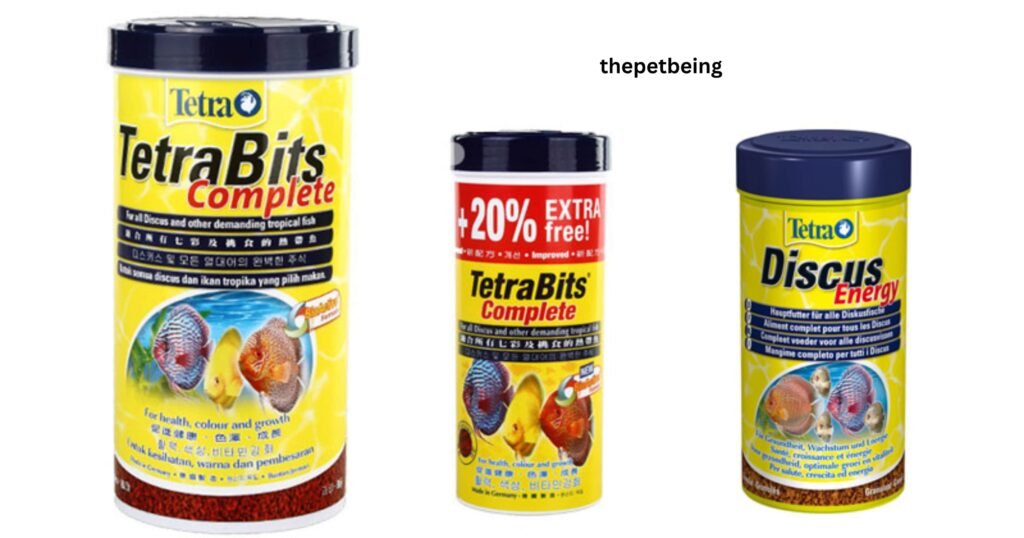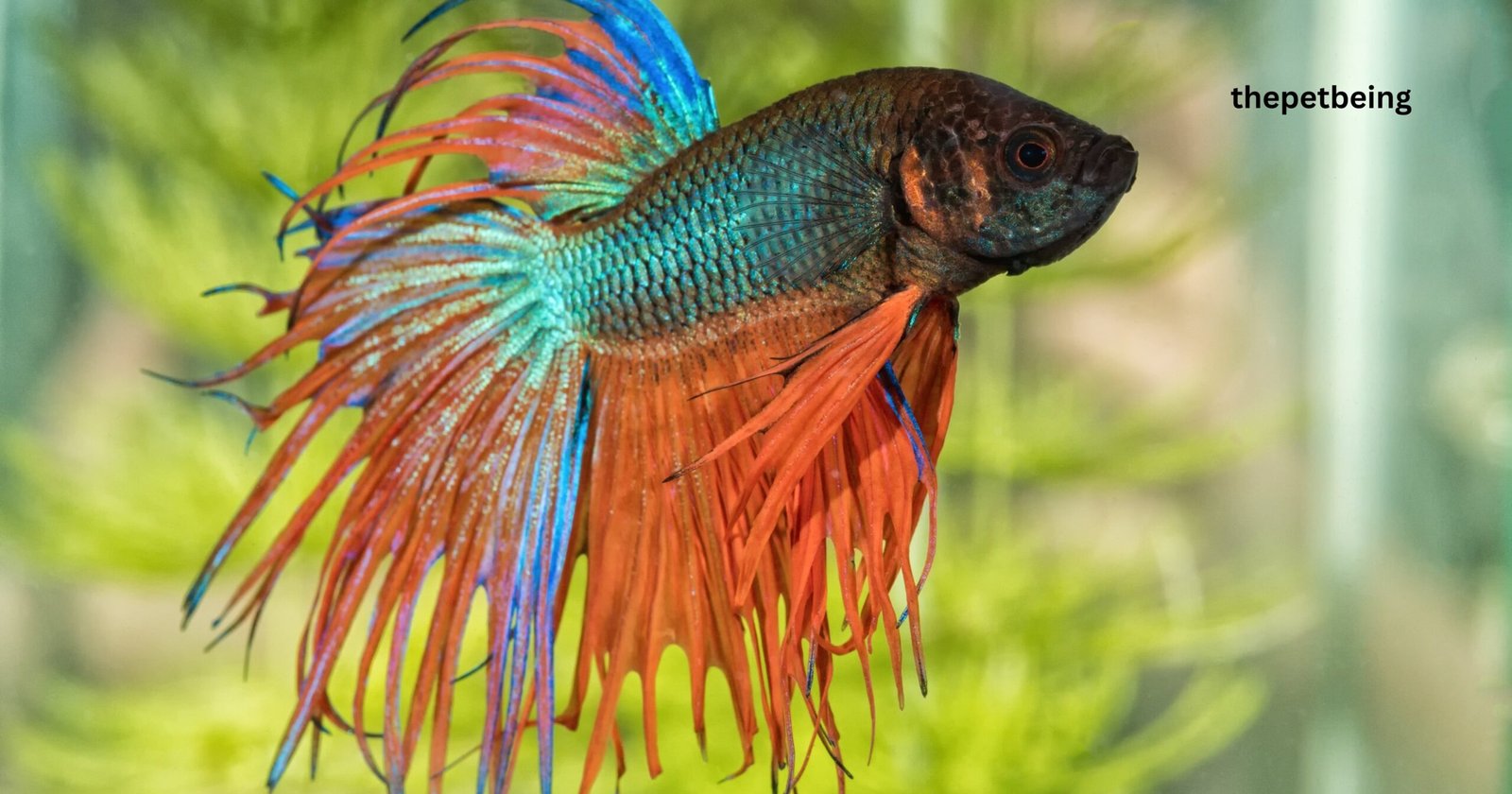Bettas, or Siamese fighting fish, are a popular aquarium addition in homes worldwide.
They can make an exciting and colorful conversation piece with unique characteristics that many people find attractive.
One of the most curious features of these gorgeous fish is their size: exactly how big do betta fish get?
Betta fish typically reach a maximum length of 3 inches or less.
We’ll delve into information about bettas, including their average size ranges, potential health impacts on more extensive than usual sizes, and more – so read on to get all your answers.
Read on for tips on what sides will help bring out all the flavor potential in your fresh catch – from zesty salsas and preferred pairings to crunchy toppings and cool dips.

Betta Fish Size: An Overview
1. Typical Size of Betta Fish
Betta fish are small, usually about 2 to 3 inches long.
They grow this big in about a year. Some can get a bit bigger, up to 5 inches, but that’s rare. Bigger size may mean health issues.
Always keep an eye on your betta’s size.
2. Factors Affecting Betta Fish Size
Multiple factors influence the size of a betta fish. Its diet is critical – a nutritious, balanced diet promotes healthy growth.
The fish’s environment also matters. Fish kept in clean, spacious tanks tend to grow larger.
Always remember a sudden size increase could be a health warning.
2.1Genetics:
- Genetics significantly influence a betta fish’s size.
- Fish from more prominent founder lines will likely grow more significantly than those from smaller ones.
2.2Diet:
- A well-balanced diet contributes significantly to a betta fish’s size.
- High-quality, nutrient-rich food enables healthy growth and development in these fish.
2.3Water Quality:
- Maintaining excellent water quality is crucial for betta fish growth.
- Clean water with suitable temperature and pH fosters healthier and bigger bettas.
2.4Growth Stages of Betta Fish
- Bettas start as small fry and grow in stages. In the first months, they grow fast, going from tiny to about an inch long.
- Then, growth slows down as they mature.
- By a year, they are fully grown.
- It is vital to feed them good food and keep their water clean for healthy growth.
2.5Fry (Baby Betta)
- Fry are baby betta fish.
- They’re tiny, just a few millimeters long, and need high-quality food and clean water to mature healthily.
- Proper care during this stage is essential.
2.6Juvenile Betta
- Juvenile Bettas, slightly larger than fry, require exceptional care, including nutrient-rich food and clean water.
- Their gradual growth during this stage leads them towards maturity.
2.6Adult Betta
- Adult bettas are mature and fully grown, generally between 2 to 3 inches long.
- Exceptional care during their growth stages results in healthier adults.
- Proper diet and water quality are pivotal in maintaining their optimal size and ensuring overall health.

Betta Fish Tank and Space Requirements
1. Choosing the Right Tank Size
- Selecting an ideal tank size for your Betta fish is essential.
- Small tanks can lead to health problems and stress.
- A bigger tank gives your fish more room to swim and play.
- It’s best to get a tank at least 5 gallons or larger.
- This provides enough space and makes maintaining a clean and healthy environment easier.
- Always remember, a happy fish is a healthy fish.
2. Minimum Tank Size for Betta Fish
- While some might suggest that Bettas can comfortably live in small containers, this is a misconception.
- Bettas in nature live in large, shallow bodies of water that provide ample space to swim and explore.
- It’s essential to recreate this environment in captivity to ensure their well-being. Therefore, a single Betta fish’s minimum recommended tank size is 5 gallons.
- This size offers enough room for the fish to swim and engage in natural behaviors, significantly enhancing their quality of life.
3. Importance of Tank Environment
- An ideal betta fish environment goes beyond just the size of the tank.
- Other factors, such as water temperature, filtration, and decorations, also play significant roles.
- Bettas thrive in warm water, ideally between 76 to 82 degrees Fahrenheit, so a heater might be necessary for your tank.
- A gentle filtration system is also vital to keep the water clean without creating strong currents that bettas dislike due to their natural habitat in slow-moving water.
4. Importance of Space for Betta Fish
- A betta fish needs space to grow and play.
- A small tank can stress them and cause health problems.
- So, always choose a tank that’s at least 5 gallons.
- It should be cleaned with warm water.
- Betta fish like slow-moving water, so avoid strong filters.

How to Promote Healthy Growth in Betta Fish
Feeding betta fish the right food and providing a clean, big tank helps them grow well.
It’s essential to give them high-quality food rich in nutrients.
Make sure their water is clean and at the right temperature.
This care helps bettas stay healthy and grow to their full size.
1. Proper Nutrition
- Feeding bettas the right food is vital.
- They need nutrient-rich meals for good health and growth.
- It’s also vital to keep their tank clean and warm.
- Good food and a great home help bettas grow and reach their full size.
- A happy betta is a healthy betta.
2. Water Quality and Maintenance
- A clean tank is vital for better fish health.
- It needs regular checks and cleaning.
- Good water quality will help the betta fish grow and stay healthy.
- The temperature should be correct, too.
- This makes sure the fish is comfortable.
- Regular tank maintenance is a must for a happy betta fish.

Tips for a Happy Betta Fish
1. Temperature:
- Bettas like warm water.
- Keep the tank’s temperature between 76 to 82 degrees Fahrenheit.
- A heater can help maintain this warmth.
- With the right temperature, your betta fish will be happier and healthier.
- This is a crucial step in taking care of your betta fish properly.
- Check the water temperature regularly to ensure it’s at the right level.
2. Filtration:
- A good filter is essential for your betta fish’s tank.
- The filter helps to clean the water, removing any dirt or waste.
- This keeps the water clean and safe for your betta fish.
- But remember, betta fish don’t like strong water currents.
- So, choose a filter that produces gentle flow.
- Regularly check and clean the filter to keep it working well.
3. Tank Mates:
- Betta fish can live with other fish, but be careful.
- Some fish might fight with your betta.
- It’s best to choose calm fish.
- Snails and shrimps are good choices.
- They’re peaceful and won’t bother your betta.
- A happy betta fish feels safe.
- Always keep an eye on your betta and its tank mates.
4. Regular Observation:
- Regularly observing your betta fish is critical.
- Look for changes in their behavior or appearance.
- They’re likely healthy if they’re active and their colors are bright.
- If you see any problems, act quickly.
- A quick response can help keep your betta fish happy and healthy.

Betta Fish Life Stages
1. Egg Stage
- In the egg stage, betta fish are tiny and cannot swim or eat independently.
- They stay inside their eggs, protected and nourished until they hatch.
- The father betta guards the eggs, ensuring they are safe and warm.
- This stage is crucial for healthy baby bettas.
2. Fry Stage:
- At this stage, the betta fish are just babies.
- They are really small, only a few millimeters long.
- They need spotless water and good food to grow up healthy and strong.
- This stage is crucial for them.
3. Juvenile Stage:
- When the betta fish get a little bigger, they are called juveniles.
- They still need to be taken care of very well.
- Good food and clean water are still important.
- The juveniles keep growing slowly and steadily.
4. Adult Stage:
- When betta fish are fully grown, they are called adults.
- They usually grow to be about 2 to 3 inches long.
- If they are cared for properly when they are young, they will be healthy adults.
- It’s still important to give them the right food and clean water.
5. Senior Stage:
- As betta fish get older, they become seniors.
- At this point, keeping their environment clean, feeding a balanced diet, and regularly monitoring their health become even more critical to ensure their well-being.
Betta Fish Growth Chart
Here is a simplified growth chart for Betta fish:
0-2 weeks (Egg Stage):
At this stage, Bettas are enclosed within their eggs. The father guards the eggs during this period.
2-4 weeks (Fry Stage):
Betta fry emerge from their eggs. They are tiny and delicate, requiring clean water and high-quality food to promote growth.
1-3 months (Juvenile Stage):
Juvenile Bettas display increased growth and begin to show their characteristic colors. They still require a carefully maintained environment and nutrient-rich diet.
3-6 months (Young Adult Stage):
During this stage, Bettas reach sexual maturity. Their colors become more vibrant, and males develop the long, flowing fins they are known for.
6 months – 3 years (Adult Stage):
This is the prime of Betta’s life. They are at their most vigorous, with bright colors and active behaviors. Regular care, including balanced nutrition and clean water, is still essential.
3 years and above (Senior Stage):
Bettas at this stage require more care, as their health may start to decline. Diet, water conditions, and regular health checks are critical to their well-being.
How To Safely Make Betta Fish Grow Bigger
To make your betta fish grow bigger and healthier, here are some simple steps to follow:
- Nutrition: Feeding your betta a balanced and high-quality diet is crucial. Betta fish require a mix of proteins and vitamins, which are present in specially-made betta pellets or flakes. Frozen or live feeds like brine shrimp or bloodworms can be added for variety. Don’t overfeed, though. Give your betta small portions several times a day.
- Tank size and conditions: A larger tank of at least 5 gallons gives your betta room to swim and grow. The water temperature should be carefully maintained between 76 and 82 degrees Fahrenheit. Clean and change the water regularly to avoid harmful bacteria and toxins from building up.
- Water filtration: While bettas can survive in still water, a slow-moving filter can help keep the water clean and oxygenated. Remember to choose a filter that doesn’t create a strong current that can stress your fish.
- Regular check-ups: Monitor your betta fish daily for any changes in its behavior or appearance. Early detection of any illness or stress can help you quickly ensure the fish’s wellbeing.
- Tank companions: If you wish to keep other fish with your betta, ensure they are peaceful and non-aggressive. Too much stress can hinder your betta’s growth.
- Care during life stages: Extra care must be given during the various stages of a betta’s life. For example, Fry and Juveniles require a lot of clean water and high-quality food. Adults and Seniors need regular health checks.
Conclusion
Taking care of betta fish is a rewarding task. Their size varies based on their genetics and the care they receive. Generally, adult bettas grow to be about 2 to 3 inches long. The key to helping your betta fish grow healthy and robust is providing good care at each life stage – from egg, fry, juvenile, adult, to senior. Feed them a balanced diet, keep their water clean, and monitor their health regularly. A larger tank also gives them more space to swim and grow. If you choose to have other fish in the tank, ensure they are peaceful.
These simple steps ensure that your betta fish grow more prominent and live a long, happy, and healthy life. Remember, bettas rely on you for their well-being. Your love, attention, and care can help them thrive.
FAQs
How Big Will a Betta Fish Get?
Betta fish usually grow to around 2 to 3 inches long.
Their size can vary based on their genetics and the care they receive.
Good nutrition, clean water, and a large tank can help them grow bigger.
Do Betta Fish Grow Fast?
Betta fish do not increase.
Their growth rate is slow and steady, taking several months to mature fully.
Their diet and living conditions can influence this growth.
Good nutrition and a clean, spacious tank can help them grow healthier and more robust.
Do Betta Fish Eat Much?
Betta fish eat a moderate amount.
It’s essential to feed them small portions several times a day.
Overfeeding can harm their health.
A balanced diet with betta pellets or flakes and occasional treats like brine shrimp or bloodworms is ideal.
Always remember, less is more when it comes to feeding bettas.
Can Betta Live With Guppies?
Betta fish can live with guppies under certain conditions.
Both species should have ample space, and guppies should not have bright colors or long fins to avoid aggression from the betta.
Monitor them closely to ensure peaceful cohabitation.
Will It Hurt if a Betta Fish Bites You?
Betta fish bites are not harmful to humans.
These fish have small, blunt teeth that they use primarily for eating their food.
If they bite, you might feel a little tickle or pressure, but it won’t cause pain.
It’s rare for a betta fish to bite their owner, and it usually happens only when they mistake your finger for food.
Are Betta Fish Aggressive?
Betta fish can be aggressive, especially males.
They fight and behave aggressively when kept with other betta fish in a small tank.
However, they are generally peaceful when kept with non-aggressive tank mates.
It’s essential to provide enough space and hiding spots in the tank to reduce stress and aggression.

